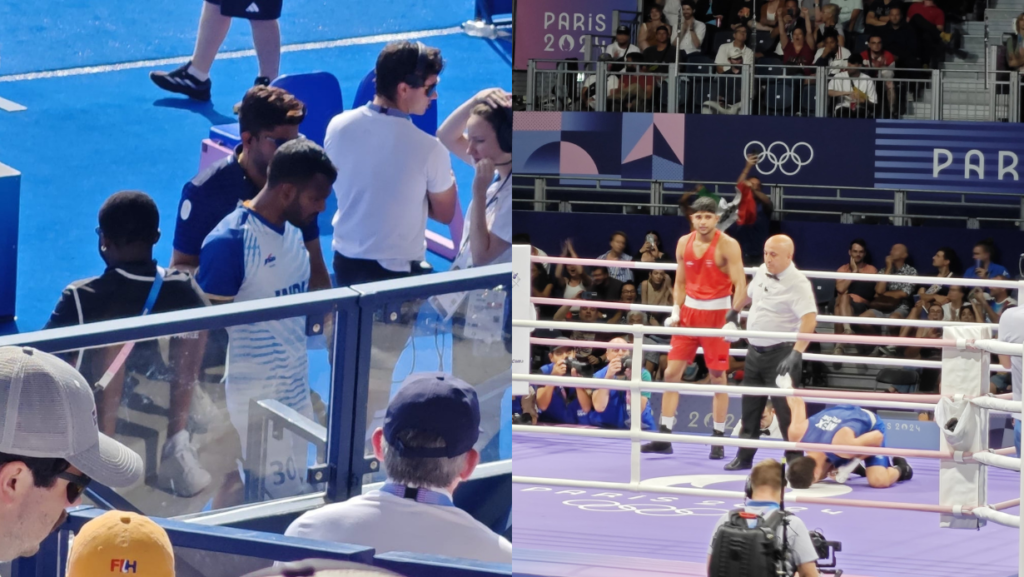
Refereeing controversies are not new to Indian sports enthusiasts. The infamous FIFA World Cup qualifier against Qatar saw a goal being allowed after the ball was dragged from out of play into the pitch. This decision significantly impacted the game’s outcome.
In Paris, some controversies have emerged. During the men’s hockey quarterfinal between India and Great Britain, India triumphed in the shootout thanks to the remarkable performance of goalkeeper PR Sreejesh. Yet, the match was marred by a red card shown to India’s Amit Rohidas for allegedly hitting Great Britain’s William Calnan in the face with his stick. The incident, which appeared accidental, resulted in a direct red card—a severe punishment rarely seen in hockey.
The red card, issued in the 17th minute, significantly disrupted India’s strategy. Without Sreejesh’s heroics—saving twelve penalty corners, a point-blank shot with just four minutes remaining, and two saves in the shootouts—India might not have reached the semifinals.
Adding to the controversy, during the shootout, Great Britain’s goalkeeper Ollie Payne was spotted with an iPad containing instructions. Despite this being against the rules, the referee merely had the device removed without issuing any card or warning.
Breaking 🚨
GBR goalkeeper carried an I-Pad to the shootouts! Is the @FIH_Hockey listening?
Is this fair? Dubious referring decisions in an Olympic QF!@iocmedia @TheHockeyIndia president @DilipTirkey and Sec. Gen #BholanathSingh share their views!@ShrachiSports… pic.twitter.com/02T5yEwPKR
— RevSportz Global (@RevSportzGlobal) August 4, 2024
The day before, in boxing, India’s Nishant Dev faced a contentious decision in his quarterfinal bout. Dev, visibly disappointed, skipped the mixed zone media interaction, mirroring the dissatisfaction felt by many over the refereeing. In the prior bout between Great Britain and Jordan, the Jordanian boxer seemed to have won decisively, yet the decision controversially favoured the British fighter.
These instances are not isolated. During the 2010 Commonwealth Games, similar concerns were raised. Indian boxers and wrestlers felt the brunt of dubious decisions, with many alleging biases. For instance, Indian boxer Manoj Kumar’s controversial loss in the semifinals sparked outrage, with many feeling he was unfairly denied a victory. In wrestling, Sushil Kumar faced questionable officiating that nearly cost him a match, adding to the growing list of grievances against perceived partiality.
There is a growing perception among fans that certain teams face harsher punishments while others receive more favourable treatment. The incidents in Paris have sparked renewed discussions about fairness and consistency in officiating.
While these observations are not meant to cast blame or make allegations, they highlight a concerning pattern. One cannot help but wonder if these discrepancies in officiating reflect an implicit bias favouring certain teams, particularly those from traditionally dominant, often “white-skinned” countries. As the Olympics continue, athletes and fans alike hope for more transparent and equitable refereeing to ensure that sportsmanship and fair play prevail.
Read More: Sreejesh’s virtuoso display takes him step closer to hockey immortality




